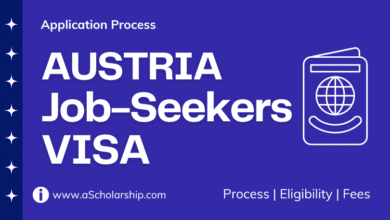Featured Scholarships
- Scholarships in 2024
Scholarships for Young Women 2024 at Shenyang Agricultural University
Are you an aspiring young woman looking to study abroad in 2024? Shenyang Agricultural University (SYAU) is offering a wonderful…
Read More » - Scholarships in Turkey
Turkey Government Scholarship 2024 Online Application Portal
In an era where academic aspirations know no borders, Turkey emerges as a beacon of opportunity for students worldwide. The…
Read More » - Scholarships in Ireland
Ireland International Education Scholarships 2024 by Irish Government
The Government of Ireland has announced the International Education Scholarships for 2024, providing 60 fully-funded opportunities under its international education…
Read More » - Scholarships in 2024
List of Fully-Funded Scholarships 2024 for International Students
Fully Funded Scholarships in 2024 are now available for international students to get admission in bachelor, masters, PhD, and postdoc…
Read More » - Scholarships in United Kingdom (UK)
Chevening Scholarships 2024 for International Students
The Chevening Scholarships for 2024 offer a unique opportunity for students from around the world to pursue a one-year postgraduate…
Read More » - Scholarships in Switzerland
Swiss Government Excellence Scholarships 2024 in Switzerland
The Swiss Government Excellence Scholarships 2024-2025 provide full funding for international students pursuing master’s, PhD, or postdoctoral studies, covering tuition…
Read More » - Scholarships in USA 2024
Cornell University scholarships 2024 in USA
Cornell University scholarships 2024-2025 batch are currently open for online applications for all degree and non-degree programs; for all students…
Read More » - Scholarships in USA 2024
US Fulbright Scholarships for 2025 for International Students
You can now avail yourself a chance to study for free in America if you apply for this US Fulbright…
Read More » - PhD (Doctorate) Scholarships 2024
Fully-funded KTH Sweden Scholarships 2024-2025
Applications are now open for the fully-funded KTH Scholarships in Sweden for the 2024-2025 academic year. This is an excellent…
Read More » - Scholarships in Hungary
List of Hungary Scholarships 2024 Batch Admissions
Attention students! The Hungarian Government has launched its admissions portal for the 2024 Hungarian Government Scholarships and this fully-funded opportunity…
Read More » - Scholarships in 2024
ANSO Scholarship for Young Talents 2024 in China
The CAS-TWAS Scholarships in China have been renamed as ANSO Scholarships. The ANSO Chinese Scholarships Program for the 2024-2025 academic…
Read More » - New Zealand Scholarships
University of Otago Scholarships 2024 New Zealand
Applying for a scholarship at the University of Otago is essential due to the significant amount of funds required for…
Read More » - Scholarships in 2024
Women Scholarships 2024 for International Female Students
We are happy to announce that the following organizations are accepting applications for women’s scholarships 2024-2025. I know college funding…
Read More » - Scholarships in Canada
Fully-funded Scholarships in Canada 2024 Without IELTS Requirement
The Government of Canada in cooperation with Canadian Universities has announced thousands of fully funded Scholarships in Canada without IELTS…
Read More » - Scholarships in China 2024
Chinese Government Scholarships 2024-2025 | CSC Scholarship by China Scholarship Council
Online application window will be open for international students in October for fully funded Chinese Government Scholarships 2024-2025 in over…
Read More »









































